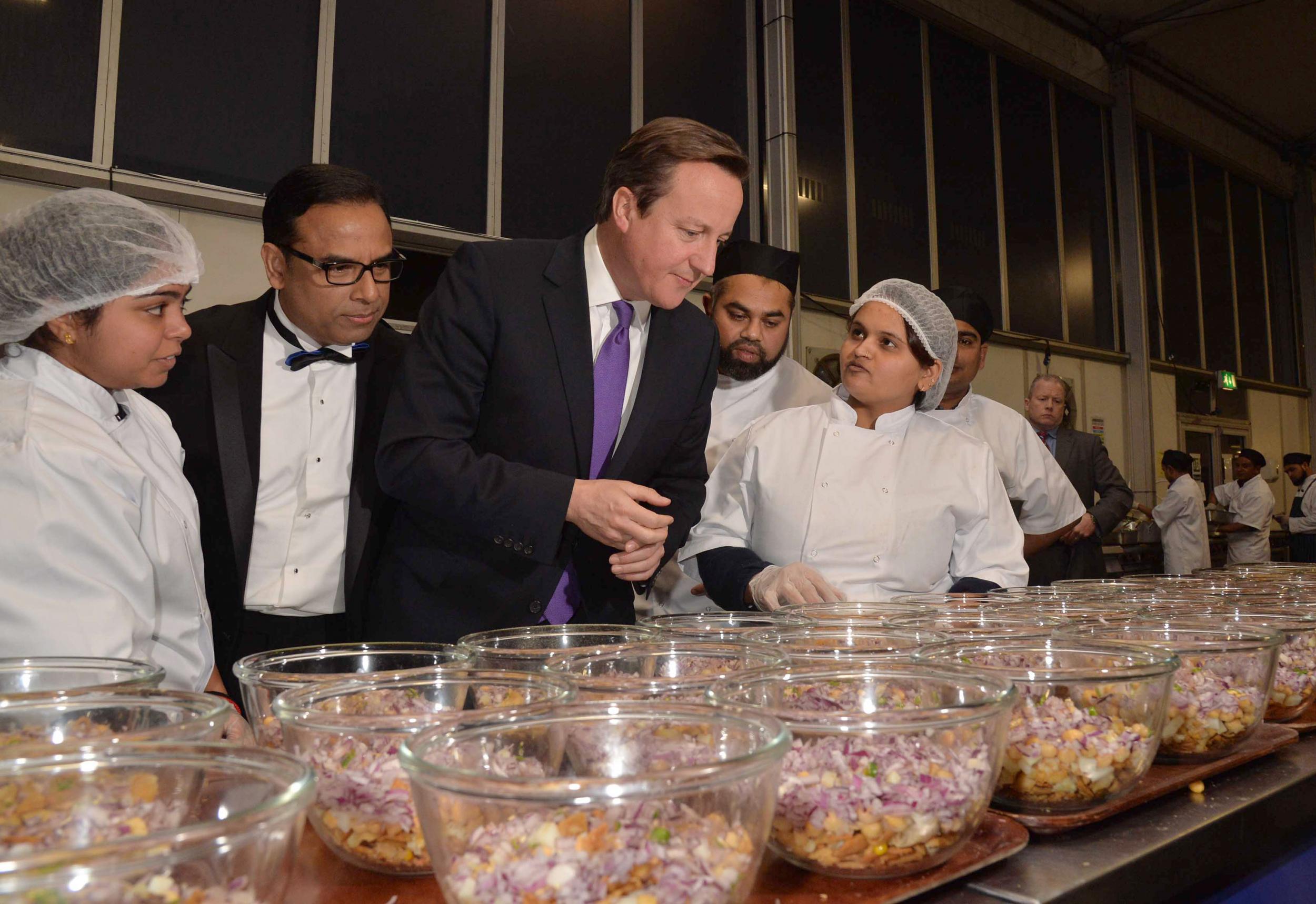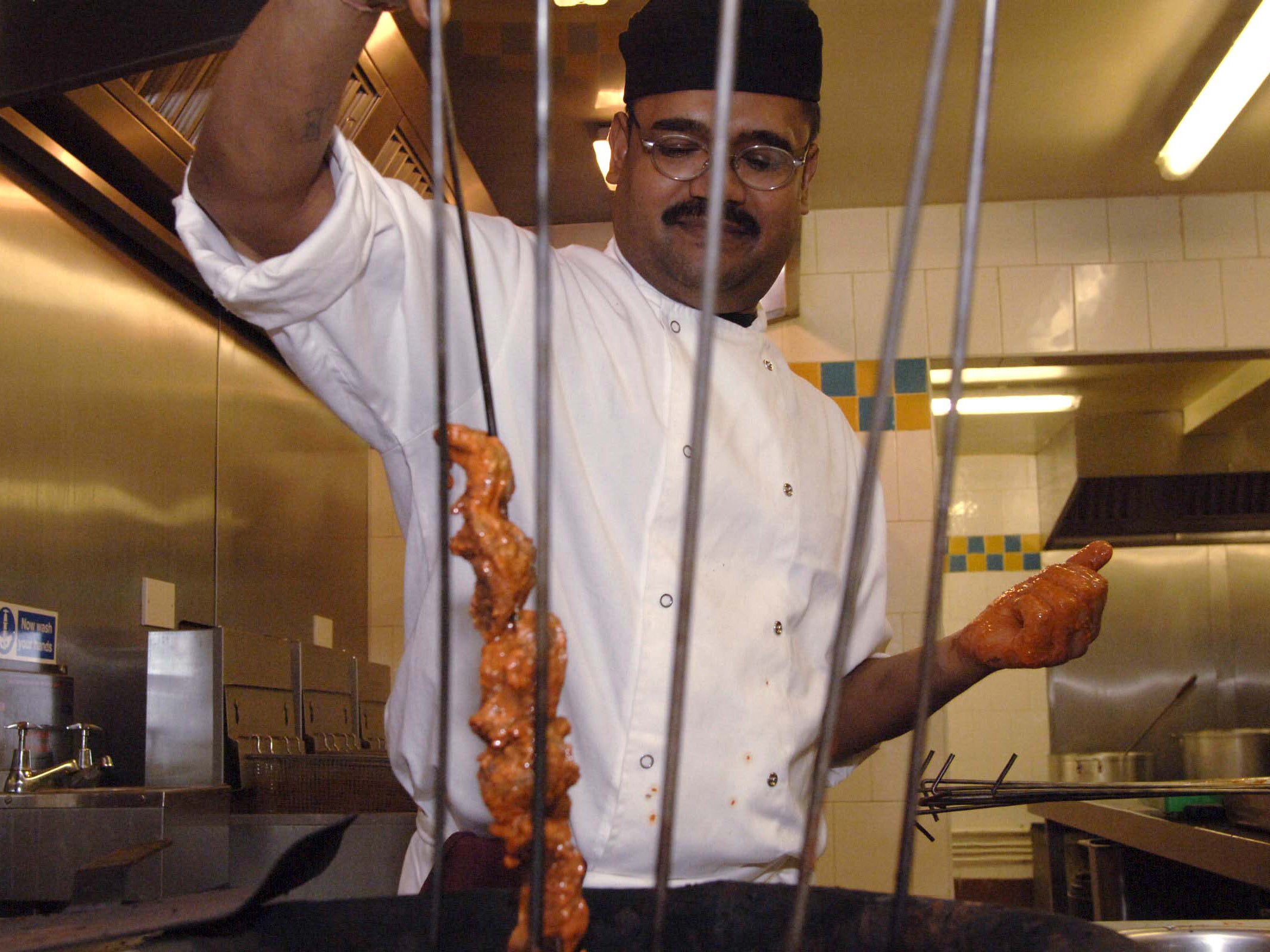Third of curry houses could close as tough immigration rules block chefs coming to UK
Curry Awards founder Enam Ali is urging the Prime Minister to introduce a one-year visa scheme for chefs

The curry industry is in crisis because restaurants are unable to recruit top chefs due to new immigration rules, an industry leader has said.
Around 600 curry houses across the country have shut in the past 18 months and there are fears that a further 4,000 restaurants - around a third of the industry - could follow.
Curry house owners say the increasingly tough immigration rules mean they are struggling to bring highly-skilled chefs over from Asia and it is making it difficult for these businesses to grow.
As a result, restaurants are increasingly unable to provide adequate customer service or fulfil orders.
British Curry Awards founder, Enam Ali, and his supporters are campaigning for the Government to ease immigration restrictions.
He has sent a 75-page document to the Prime Minister, the Home Secretary, the Business Secretary and employment minister Priti Patel, to urge them to introduce one-year visas for chefs from sub-continental Asia.
If the plan is not approved, Mr Ali warns it could hurt the Conservative party as the Asian community are "mad" about the situation and "will very genuinely show that at the ballot box".
His submission said: “We propose a tightly controlled, temporary work visa scheme where expert chefs from outside the EU are allowed to enter the UK on very strict employment terms. These terms would limit their employment to a maximum of one-year with no right of return, no chance of residency or out-of-work benefits.

“Employment would be restricted to the sponsoring restaurant only and would require the employer to provide private health insurance. The employee’s dependents could not be brought to the UK and this means there would be no burden whatever on the welfare state or the British taxpayer. This type of short-term visa is similar to those used in the USA, Germany and the Middle East.”
Current immigration rules mean chefs wanting to come to the UK must earn at least £29,570 after deductions for accommodation and meals and cannot work at a restaurant with a takeaway attached.
Curry house owners say they cannot afford to pay those wages and most businesses have a takeaway service.
Imam Uddin, president of the Guild of Bangladeshi Restaurateurs in Staffordshire, told the Guardian: “There are lots of restaurants up for sale, but nobody’s buying. It’s pretty bad. They can’t deliver the service they intend to, which ultimately leads to under-trading and, eventually, closure.”
The shortage of chefs has led to increasingly high wages with Dr Wali Uddin, who owns a curry house in Edinburgh, saying the typical wage has now doubled in the last two years to between £700-800 a week.
Alun Sperring, who owns the Chilli Pickle restaurant in Brighton, says chefs are now demanding free accommodation which is “totally unfeasible”.
He said bringing chefs over from Asia brought “authenticity” to their menus and inspired permanent staff members.
A Home Office spokesperson said: “We want to nurture more home-grown talent and encourage young people in this country who want to pursue a skilled career. This means the restaurant sector offering training to attract and recruit resident workers to meet their staffing needs.
“The industry is starting to make progress in this area, recruiting and training more chefs in the UK, and this needs to continue.”
Join our commenting forum
Join thought-provoking conversations, follow other Independent readers and see their replies
Comments
Bookmark popover
Removed from bookmarks